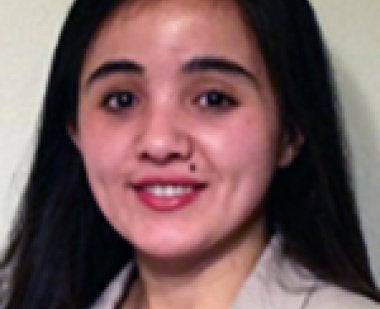
COLLEGE PARK, MD (January, 2017) – As those with an autism spectrum disorder (ASD) transition from high school to adult life, postsecondary training, professional training and vocational training may help make that transition easier by developing skills associated with independent living.
Gulnoza Yakubova, an assistant research professor at the University of Maryland College of Education, focuses her research efforts on children with ASD, mostly at the middle and high school level, and the development of the skills required for independent living as an adult.
Dr. Yakubova was most recently working at Duquesne University, located in Pittsburgh, before coming to UMD in the fall of 2016.
“[UMD’s position as] a major research university was the first thing that drew me to this campus. Another thing that drew me to this university’s campus was the focus on innovation and interdisciplinary research,” she said.
Currently, she is studying how video-based instructional strategies can help students build those independent living skills in school and community settings. Part of her research focus involves teaching students everyday math skills, from buying groceries to counting change —relevant whether they go on to college or get a job after finishing high school.
“If they’re getting a job, young adults with ASD need to understand how they’re getting paid, they need to be able to understand their taxes, they need to understand how to make any purchases in this society to fulfill their daily needs,” Dr. Yakubova said. “When they go out for leisure [activities], they need to be able to know how to count change and how to use debit and credit cards, which all involve math in everyday functioning.”
Those considerations take on a greater importance for families of teens with ASD who are approaching adulthood, but families think about these life skills from the time children are diagnosed on the spectrum, Dr. Yakubova said.
“From that moment they are thinking [and] planning ahead. ‘What’s going on? What’s my child’s future going to look like?’” she said. “They say, ‘I’m not here forever, so what’s going to happen to my child?’ Do they have siblings, and are siblings going to take care of them or are they going to live in group homes? Are they going to have successful lives going to college or have a successful full-time job? Those kind of conversations.”
Dr. Yakubova, a native of Kazakhstan, developed an interest in studying ASD during her undergraduate years in Uzbekistan, where it was uncommon at the time for her to see people with disabilities in general, both in school and in the community at large, though more awareness of ASD has developed in recent years, she said.
After graduating with her bachelor’s degree and working for a year, she decided to go to Purdue University, where she earned her master’s and doctorate degrees, to focus on special education. Her interest continued to develop as she read about prominent members in the ASD community, including Temple Grandin, Daniel Tammet and John Elder Robison.
“The more I learned about ASD … the more I became interested,” she said. “Part of my interest in ASD also came from my conversations with parents and family members of people with ASD and seeing what kind of struggles they have when raising a child with ASD.”
In addition to her research, she is also teaching graduate-level courses and serving as the faculty mentor of a team of UMD students who are part of the Future of Innovation Alliance's Innovation Fellows, an interdisciplinary program which allows students to use virtual and augmented reality to address real-world challenges, for a project to help students with ASD.
Going forward, she’s looking forward to building relationships with her students and colleagues, as well as creating partnerships in the community.
“I’m definitely excited and looking forward to many more semesters here,” Dr. Yakubova said.



